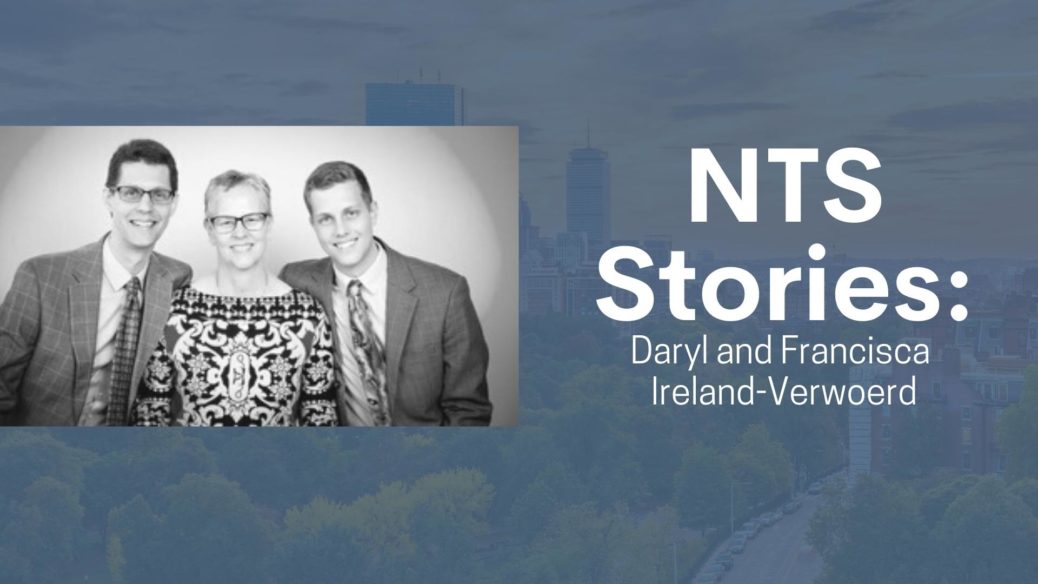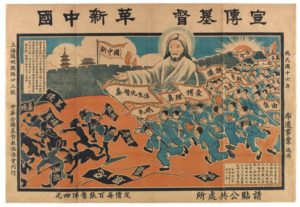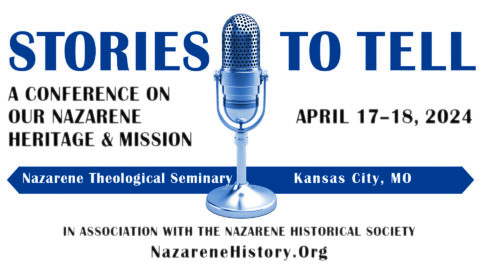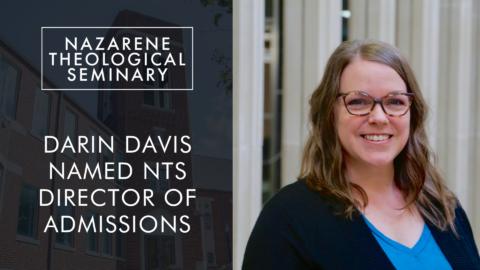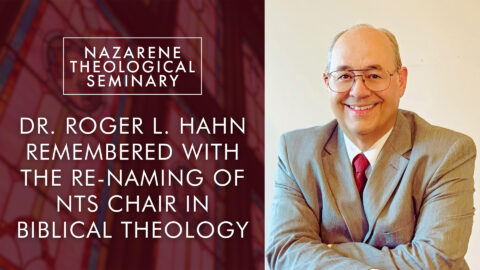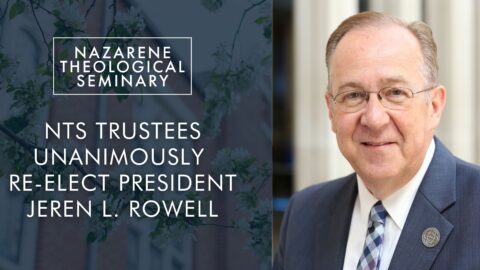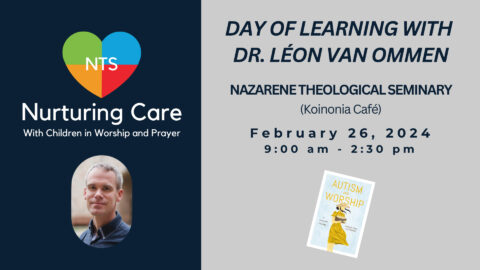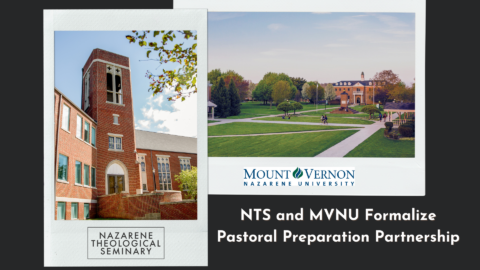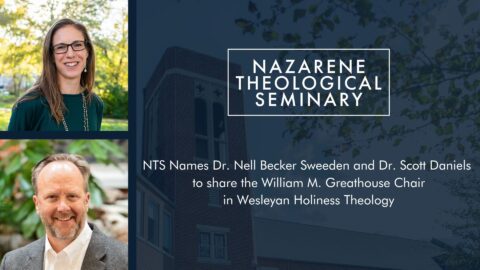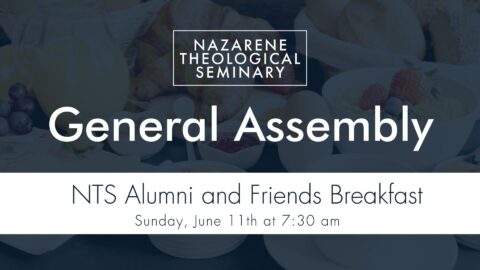August 2020
We recently interviewed NTS graduates Daryl and Francisca Ireland-Verwoerd to learn about their call to ministry and the innovative ways they are ministering through world missions, education, and art.
When did you graduate from NTS?
Daryl: I graduated in 1998 with an M.Div. degree. In 2008, I added an M.A. in Christian thought and history.
Francisca: I came to NTS from the Netherlands in 1994 and graduated in 1998. My original intention was to be close to the missions people at Headquarters for a year so that they would send me out, while I also learned a few things, of course. So I started with the MA in missions. Very soon, though, it dawned on me that I needed to know about theology, church history and the Bible if I was going to teach as a missionary. So I switched to the M.Div. program with a missions minor.
Tell us about yourselves/your family.
Daryl: I am a third-generation NTS student. My grandfather, Roy Copelin, and father, Herb Ireland, both received their M.Div degrees from NTS.
Francisca: I am the oldest of three siblings, raised by Christian parents in the Dutch Reformed Church. My brother and sister became involved in gospel music and because of that connection, I have attended the Church of the Nazarene since 1983. My parents started attending 20 years ago as well and they have served as volunteer missionaries in Mozambique for seven years. Daryl and I met in my second semester at NTS. We both lived in Westport, a block from each other; we both had problem cars, so we gave each other rides; and we both attended Hope Center Church of the Nazarene. We became best friends and did many things together as friends. One week before our graduation, we started dating and three months later we were married in the Netherlands. After a two-week honeymoon, we traveled extensively in Europe and the US for a three-month deputation tour. Then we served in the Fiji Islands and the Chinese Ministries Field for seven years before returning to the US for work in the World Mission Department. Daryl used that time to get an additional degree for which he wrote a thesis about the early Church of the Nazarene in China. Our years of Mandarin study were put to good use in archival research! He was accepted into a PhD program in mission history and world Christianity at Boston University’s School of Theology. We moved to the missionary house in Quincy, MA, across from Eastern Nazarene College, originally for a few weeks – but we are still there after 11 years! In that time, I also earned a PhD from BU’s School of Theology in practical theology and the transformative pedagogy of art. I work on diverse projects while Daryl is a research assistant professor of mission and the associate director of the Center for Global Christianity and Mission at BU. We have also had the privilege of raising a ”third culture kid,” Alexander, who is half Dutch, half American, and born in Taiwan.
How have you sensed a call to vocational ministry?
Francisca: Being raised in a Christian family, I always had a real, personal sense of God. I followed the prescribed path of catechesis and confirmation when I was 19, but felt that there was something missing. At that time my brother and sister were active in a traveling gospel choir. I was impressed with the joy of the evangelical faith of these young people. Some time later, I was challenged by a sermon of an American missionary to the Netherlands to surrender 100% to God. At that moment, I did surrender all. It meant that I would do anything and go anywhere at God’s command. This constituted my mission call – the call to obey what God asks of me. This was later augmented by a desire to preach holiness, and not long after that, I could articulate the infilling of my calling as “training international leaders.” Looking back over the years, that calling has taken different shapes in different places and seasons, but the core is still the same. Because of a chronic autoimmune disease, the emphasis has changed, or rather deepened, in the last 15 years. My first calling is to love and honor God and as I live out my life of loving God and others, I find myself again and again encouraging international and interdenominational leaders.
Daryl: With Nazarene missionary grandparents and my father a Nazarene pastor, I grew up steeped in the church. As a teenager, I wanted less and less to do with God. Until, while studying at the University of Cape Town in South Africa, I decided it was time to be out and out to rid of any remnant of belief in God. I figured that if there was no God then I could be truly free. During my frenzied attempt to take apart the faith I had been raised in, I was struck by a thought: “I cannot do anything against the truth, but only for the truth.” I did not realize it at the time, but my guiding idea was a restatement of 2 Corinthians 13:8. As Paul’s words grew in me, and I came to understand that the Truth was not an idea but a Person, my vocation became clear. I could do nothing against Christ, but only for him. To me, that meant entering his service, devoting everything to him. Nothing else would last.
Where have you served throughout your ministry? Where do you currently serve?
In 1998, we graduated from Nazarene Theological Seminary with master of divinity degrees. Shortly thereafter we were married in Cisca’s home church, the Haarlem Church of the Nazarene in the Netherlands. Just two weeks later we began deputation services across Europe and the US as we prepared to go to our first missionary assignment: the Fiji Islands. If it sounds like the end of seminary was the beginning of a long honeymoon, you are not too far off!
In Fiji, we planted a small church among the people who had been brought to Fiji from India roughly 100 years earlier and we oversaw theological education for the South Pacific Field which included Samoa, Fiji, and Tonga.
We moved to the China Ministries Field in 2001. Cisca developed a program to recruit, assess, train, and deploy English teachers to work in universities and develop friendships for Christ. Daryl coordinated theological education of pastors on the field. We lived in Taiwan where our son Alexander was born.
From 2007-2009 we lived across the street from NTS. Daryl worked with Global Mission as it retooled; the Church of the Nazarene wanted to be able to send missionaries from and to anywhere.
In September 2009, Daryl began a Ph.D. program at Boston University in World Christianity. Cisca started her Ph.D. program in Practical Theology in 2011. Upon graduation, Daryl was hired as a research professor at the Boston University School of Theology, where he teaches courses in mission and Christian history, and is the Associate Director for the Center for Global Christianity and Mission. It is a unique fit that allows Daryl to stay connected to the classroom, and also involves him in international collaboration and research. At BU, Daryl spearheaded a global project to collect, digitize, and make freely available colorful Chinese Christian propaganda posters, printed by the millions in the mainland between 1925-1950. Today, people think of the sunny face of Mao Zedong when they picture Chinese propaganda, but that is only because in victory the Communists purged the country of rival messages. Prior to 1950, Christians entered public debates about how to “save the nation,” through posters that promoted particular visions of the family, health, hygiene, labor conditions, women’s positions in society, and—of course—Jesus Christ as China’s true revolutionary. These posters, available through a website built with support from the Henry Luce Foundation and the Association for Asian Studies, have introduced new and valuable sources for understanding Chinese Christianity. They do not present the sophisticated Christianity of China’s trained theologians, but the popular Christianity that competed in the marketplace with Daoism, Buddhism, and Communism. More recently, Daryl expanded his work on popular Chinese Christianity in his new book, John Song: Chinese Christianity and the Making of a New Man. In it, he explores how China’s preeminent evangelist hammered out the framework of modern Chinese Christianity in the furnace of his early 20th century revivals.
Cisca, meanwhile, finished her Ph.D. on John Wesley and theological aesthetics, and has been active as teacher, writer, translator, curriculum developer and as an artist. Besides being active in her local church, she likes expressing spiritual truths in creative ways through art and writing. Her most recent project is “The Wall of Tears.” It is a “curtain wall” that exists of little glass bottles or vials filled with “tears” hanging from fishing lines; forty vials on one line and 1739 lines in a row. A total of 69,550 vials will be displayed – this represents the 69,550 children who were detained at the border in 2019. The disastrous consequences for these children of being separated from their accompanying adults will be represented visually by the change of color of the liquid in the vials from clear “teardrops” to dark red “drops of blood.” The 1739 lines will take up about 36 feet of space, while each line with vials will be over 7 feet high. The overall impact will be overwhelming as it sinks in what actually happened to so many kids and their families. At the same time, the glass vials and the colored liquid create a stunningly beautiful visual effect, resembling beads and sparkling precious stones. The beauty and terror together constitute an attraction/repulsion energy that will make the Wall fo Tears memorable, and will hopefully fuel the viewers to action so that this practice will stop.
What makes your current assignment unique?
Daryl: My current position at BU’s School of Theology is unique for its combination of teaching, administration, and research. I also love intersecting with a community of scholars and students who are curious about Christianity in all its forms and expressions across space and time – across Boston University, and all over the world through conferences and interest groups.
Cisca: I love the creative challenge of making a vision come true. From the very beginning, I have had the support and encouragement of Daryl and our son Alexander, as well as a bi-weekly group of fellow creatives, and many people who hear about the project. The backing, inspiration and help from others propels me through difficult times.
What are some of the unique blessings/challenges in your context?
Cisca: The Wall of Tears is my first art project of this size. It simultaneously humbles and scares me to be involved with something that is not only physically huge, but also possibly huge in impact. When a lawyer friend started unpacking what all would be involved in fundraising and organization, I quickly realized that I was in way over my head. Moreover, chronic fatigue is a constant companion and an added challenge. The work is slow and sometimes I despair that it will ever get done. But then I remember that this is God’s idea. All I am asked to do is to be faithful in what I can do today.
Daryl: Missions is often associated with racism, imperialism, and wanton destruction of the world’s cultural traditions. For many, the topic is untouchable, except as evidence of evil. Yet, I get to circulate in a research university where I get to rethink missions—and its stereotypes—by engaging with professors and students from all kinds of disciplines. It is exciting to revisit Christian missions through art and architecture, for instance. Collaboration with anthropologists is invigorating. It challenges both me and the anthropologists to look closer at our assumptions and asks us to be open to surprise. Cross-cultural exchanges are far more nuanced than either the church or the academy has been willing to acknowledge. To me, missions is about boundary-crossing. It is risky, but it also puts someone in a generative and exhilarating place: an effervescent contact zone where different ideas and experiences percolate and produce new and often exciting insights. I get to live in that space at Boston University.
How did your time at NTS prepare you for faithful and effective ministry?
Daryl: NTS did several things to prepare me for ministry. First, it got me excited about the gospel. The news of God is, indeed, very good! Second, it provided me a critical network of friends and mentors who continue to help me see what God is doing around us. Third, NTS passed along traditions and practices that are somewhat intangible (at least they don’t appear in course syllabi). Dr. Gailey, for example, helped me learn how to pray. Once a week, I joined him in the upstairs chapel and heard how to pray around the world. Dr. Hahn modeled humility: I did not need to be the expert in everything. Dr. Truesdale’s involvement in and connections with the city of Kansas City demonstrated the power of collaboration, and Dr. Raser’s patience and ability to offer everyone his attention and respect spoke volumes about how vital it is to listen in ministry. The list goes on, and so does my gratitude. NTS was absolutely vital in my formation.
Cisca: There is no doubt in my mind that my time at NTS prepared me for where I am today and the ministries in which I am engaged. It didn’t stop there; all the years, places, people, and ideas in between have also formed me. But clearly, the foundation was laid at NTS, through the personal interactions with the professors and staff and their families. The chapel speakers and times of worship were tremendously formative: taking me from the shock at the “papish” Wesleyan Covenant Service in my first chapel time, to being a faithful attendee and regular celebrant in our local liturgical Nazarene service. My love for good theological conversation and ongoing learning have their roots in my NTS experience of reading, reflecting, and writing. Above all, though, the relationships with fellow students have formed a network that is still strong after more than 20 years.

